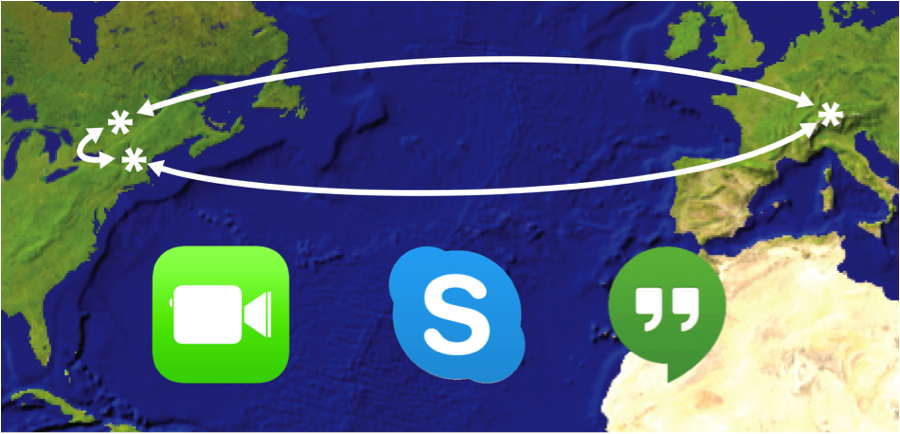
When undergraduate biology students read scientific papers, they see a tightly woven story connecting a set of data. However, not evident—and just as important for young scientists to recognize—are the ideas behind the experimental design and the challenges, failures, and triumphs of the scientists running and writing about the experiments. At Williams College, Associate Professor of Biology Matt Carter and his students learn about this hidden world of biology research by engaging authors of the papers they read in classroom discussions using Skype videoconferencing.
After reading the research paper on their own, Topics in Neuroscience senior seminar students spent the first 45 minutes of the three hour long class time discussing the paper and generating a list of potential questions to ask the authors. Then, the authors joined the discussion by Skype using laptops and a room microphone. According to Carter:

This part of the discussion was not scripted or organized and became a free flowing conversation about science, experimental work, and personal engagement with the process. Students were able to ask spontaneous questions such as, “Which experiment in the paper was the most satisfying?” This question triggered a fascinating and lengthy answer about how difficult it was to carry out a key experiment and how tremendous they payoff was when it was achieved. Such insights are not contained published paper and would only emerge in this type of discussion session.
In reflecting on the course, many students commented that the Skype discussions with authors were a major highlight of their experience. Professor Carter loves how the exchange makes biology research more personal. He adds:
Students get to see that the authors of scientific papers are not only real people, but in many ways just like them. The authors aren’t boring people who wear white lab coats all day. They are interesting, dynamic people who get excited by things, get annoyed by things, and who make mistakes.
Not only do these future scientists see the workings of a field more clearly, they gain confidence in their ability to engage with the scientists who are at the discipline’s leading edge. Concurrently, the authors who participate in the discussions have the opportunity to be involved in the education of new scientists and inspire the individuals who will supply the next round of fresh approaches to the biggest questions in biology.



